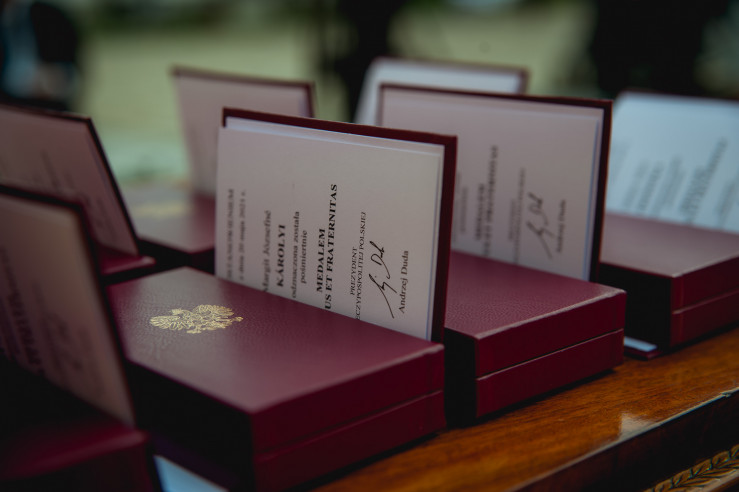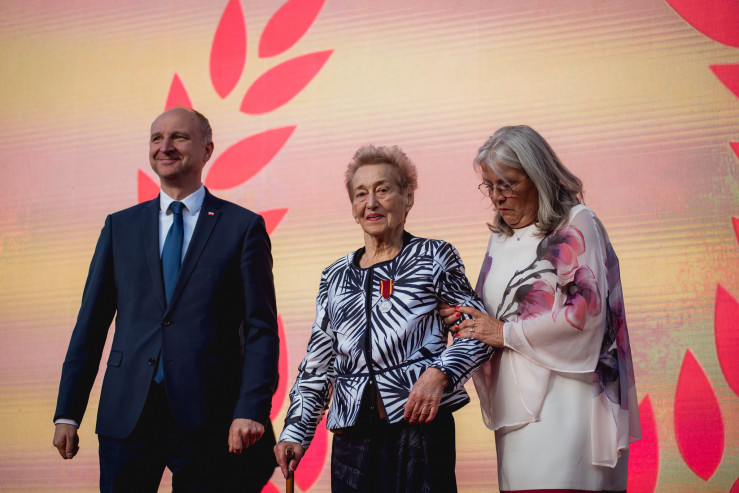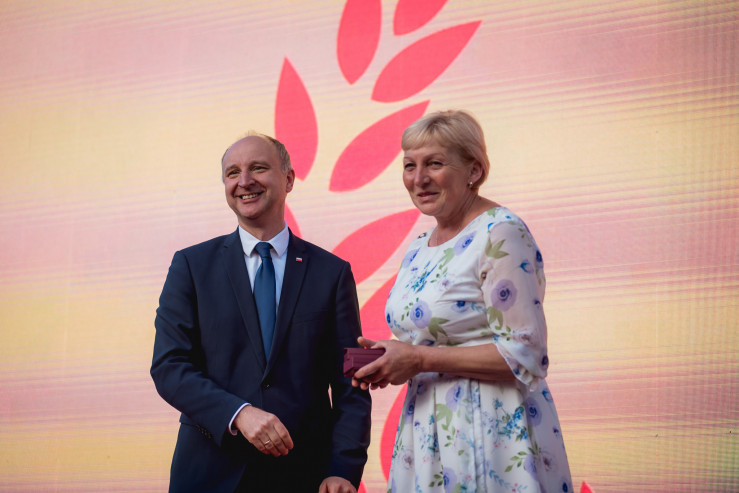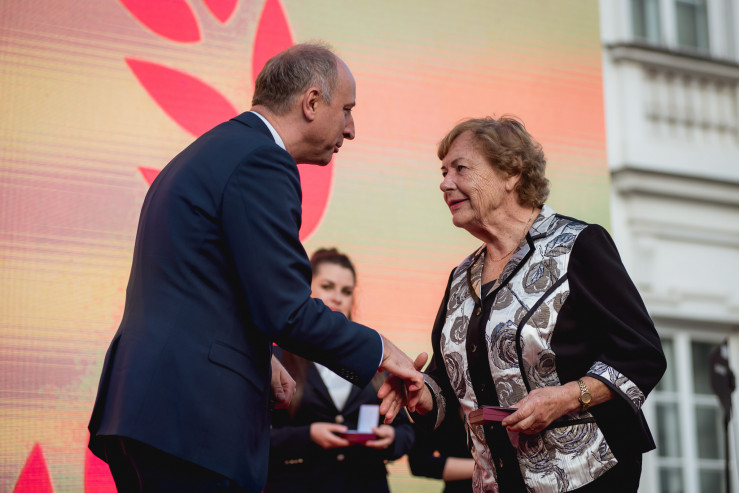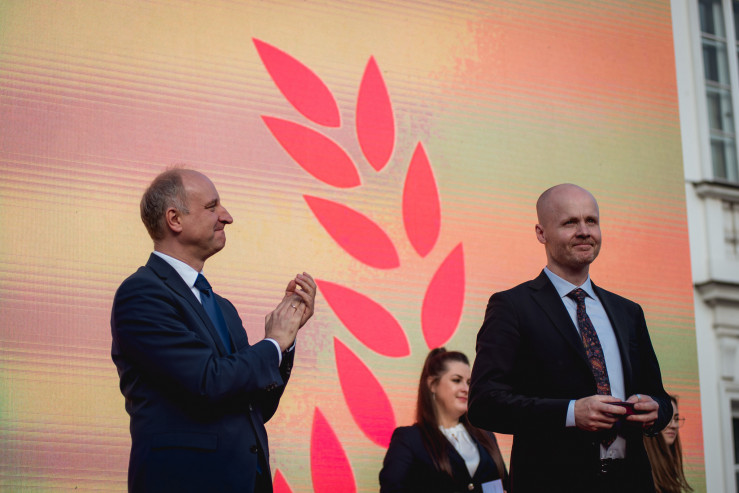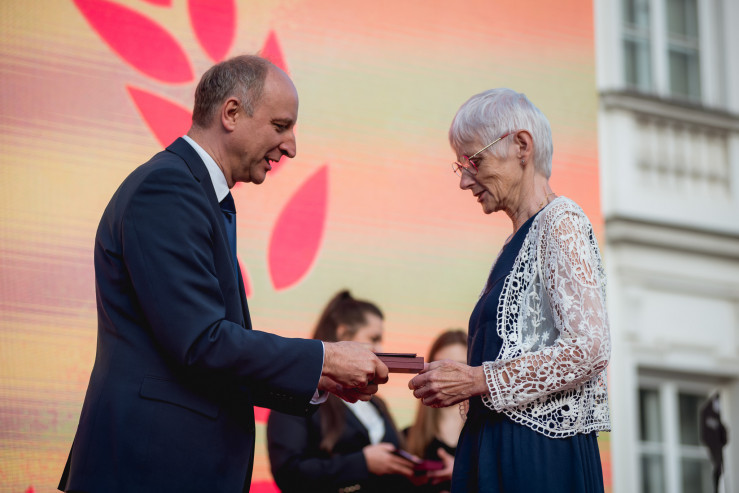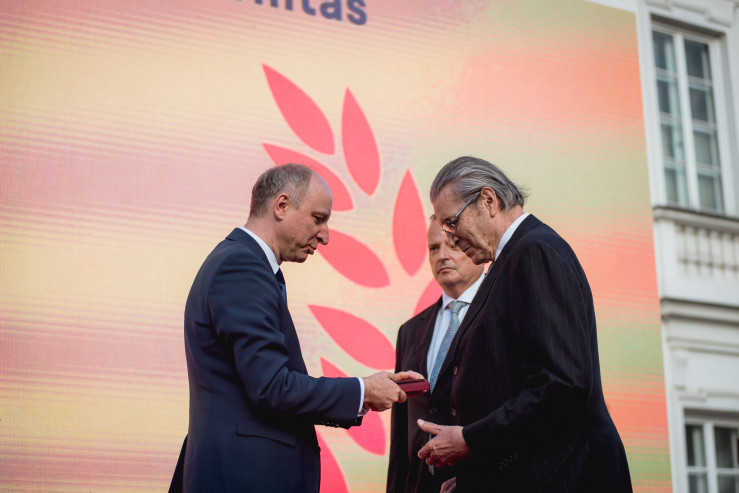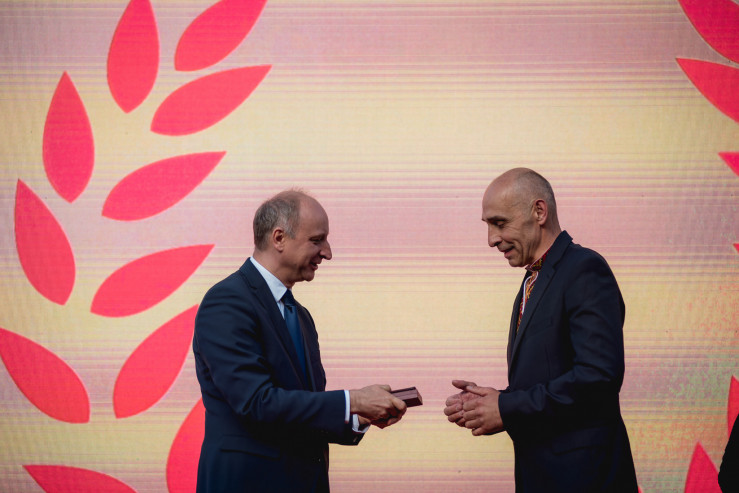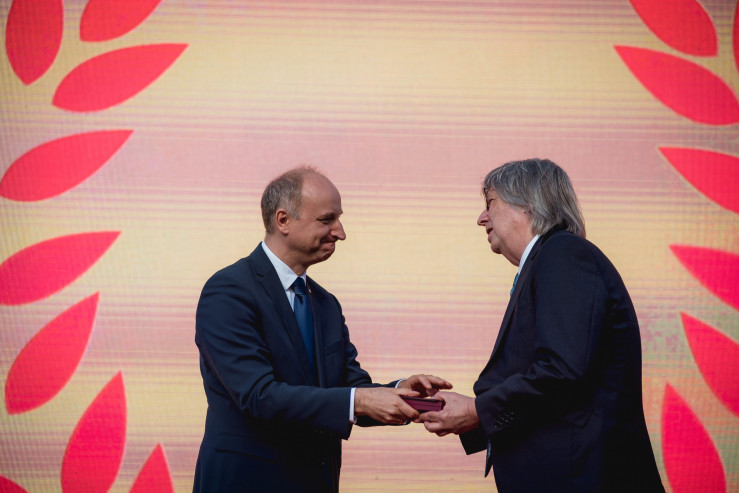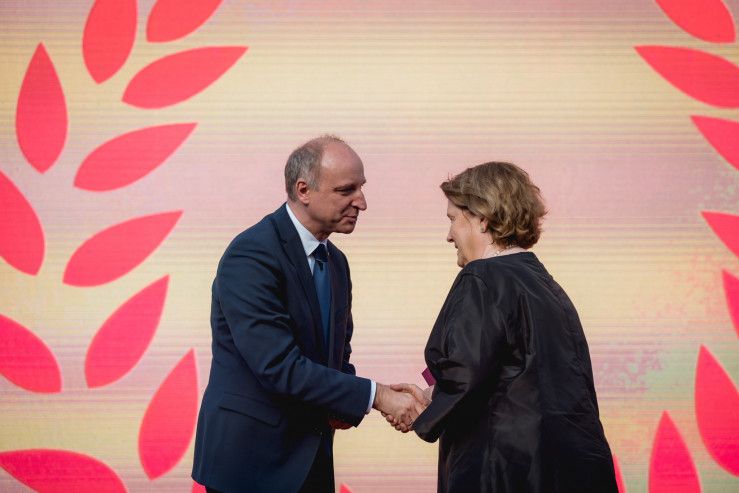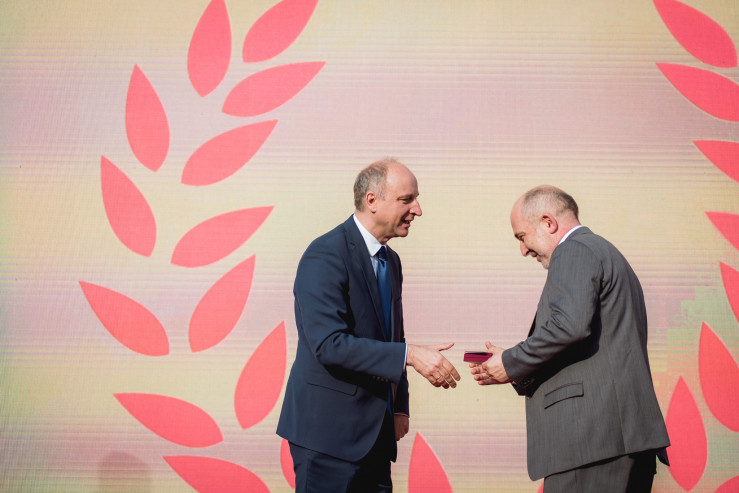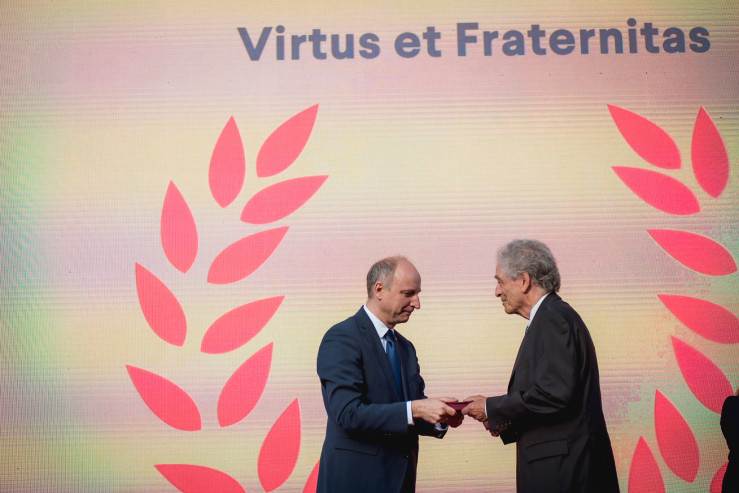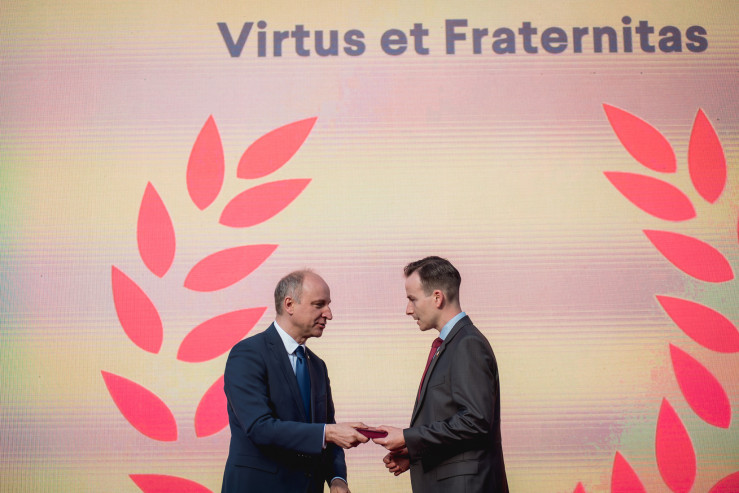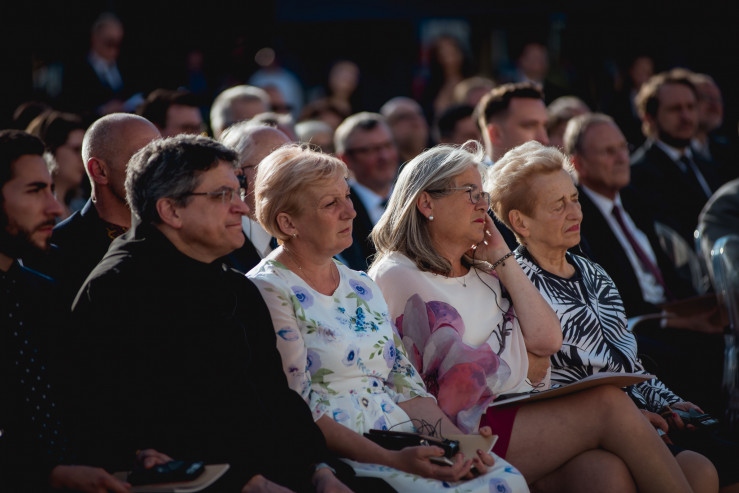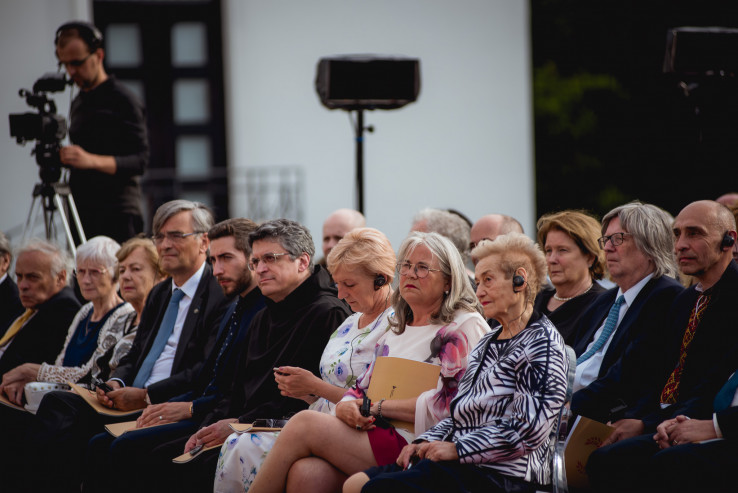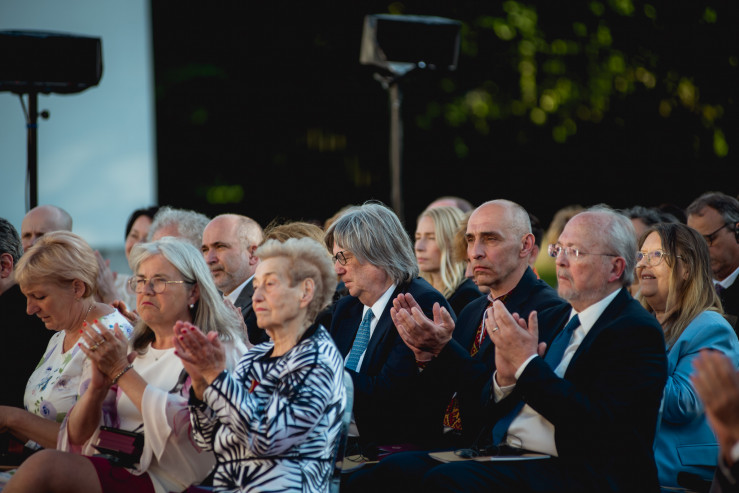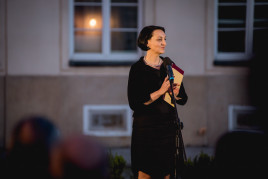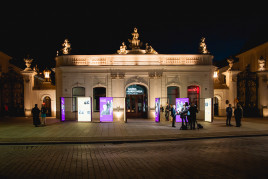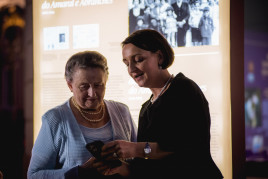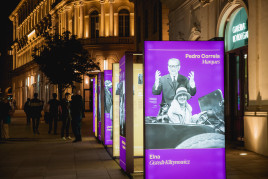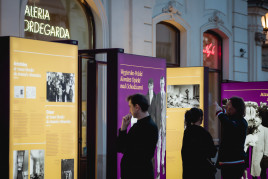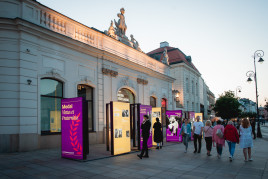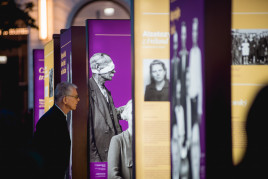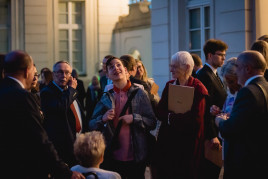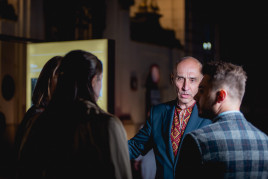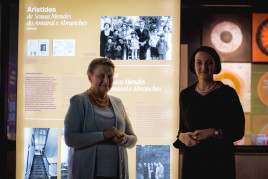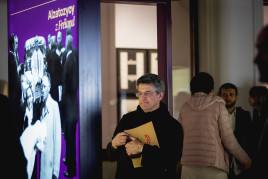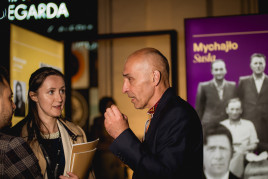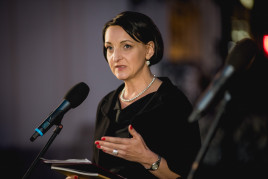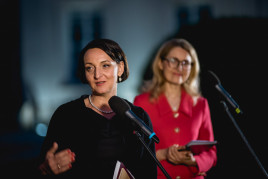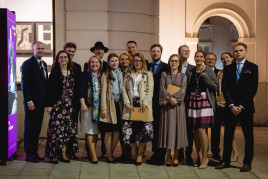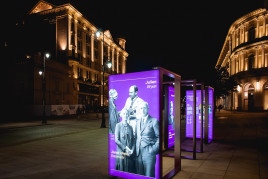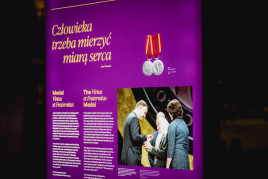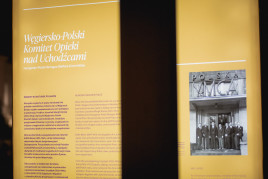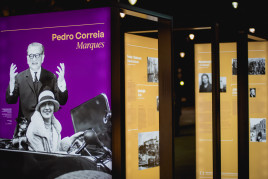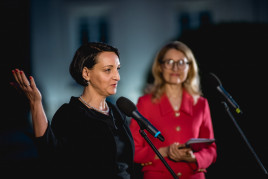Virtus et Franternitas Medals presented - Instytut Pileckiego
Virtus et Franternitas Medals presented
The third edition of the Virtus et Fraternitas Medal Gala took place on 15 June 2022. This time, at the request of the Director of the Pilecki Institute, the President of the Republic of Poland bestowed medals on a total of 23 people.
The Virtus et Fraternitas Medal is awarded by the President of the Republic of Poland as a symbol of remembrance and gratitude to those who distinguished themselves in aiding Poles and nurturing the memory of Polish victims of the totalitarian systems of the 20th century.
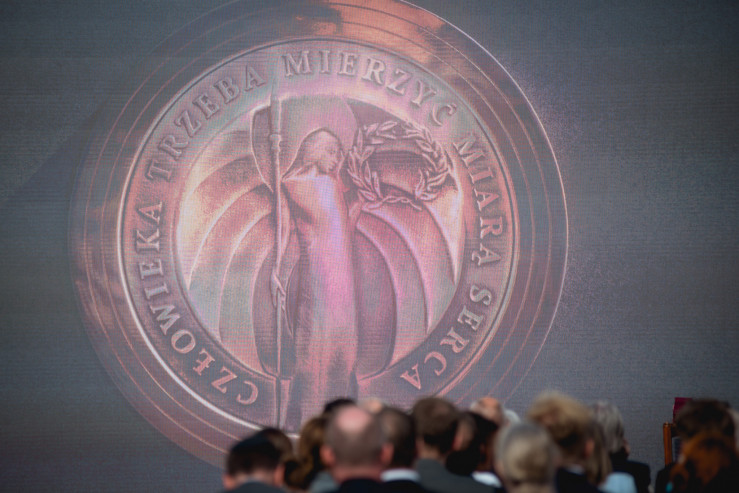
The great value of this award is in its ability to unite symbolically very disparate people – distinguished diplomats and politicians of the highest level as well as people who are publically unknown. All those who were awarded the Virtus et Fraternitas Medal decided to help in accordance with the words of the late John Paul II:
The measure of a man is his heart.
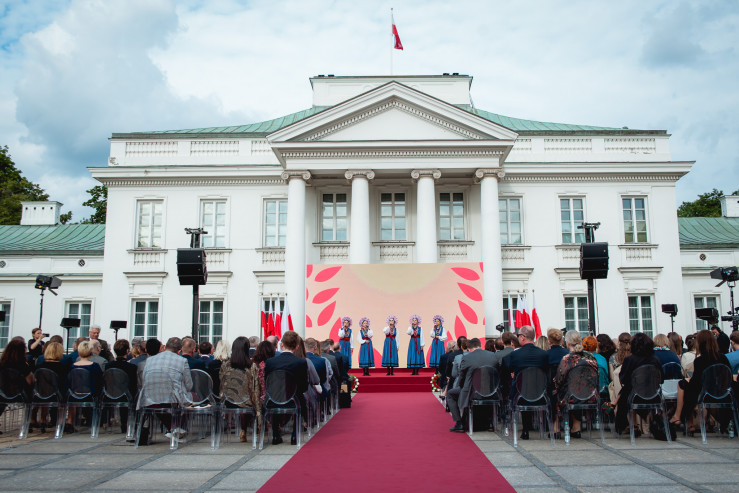
The ceremony took place in the courtyard of the Belweder Palace. All attendees were greeted by the Polish-Ukrainian vocal group Zazula, which performed a medley of folk songs (“Narodzie nasz piękny” [“Our beautiful nation”], “Cicho nad rzeką” [“Silently on the riverside”], and “Kare konie” [“Black horses”]).
The first to speak was a representative of the Chancellery of the President of the Republic of Poland, Undersecretary of State Wojciech Kolarski, who read a letter from President Andrzej Duda addressed to the recipients of the Virtus et Fraternitas Medal and their families, as well as to the representatives and descendants of the survivors.
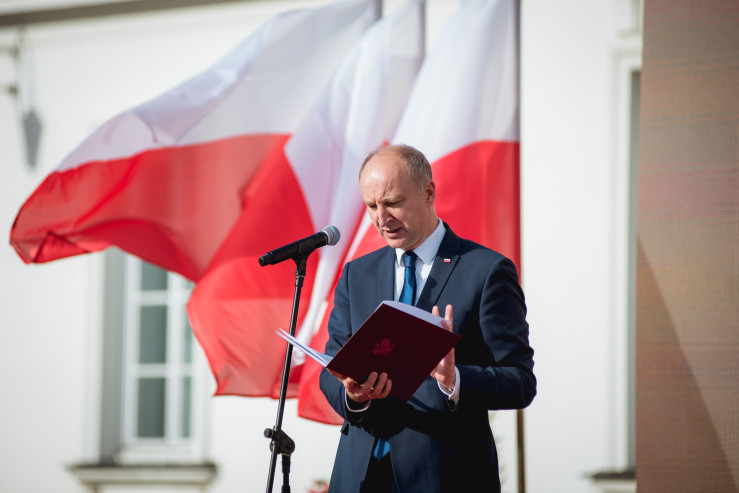
Next, Prof. Arkady Rzegocki, Head of the Foreign Service at the Ministry of Foreign Affairs, read a letter from Prime Minister Mateusz Morawiecki.
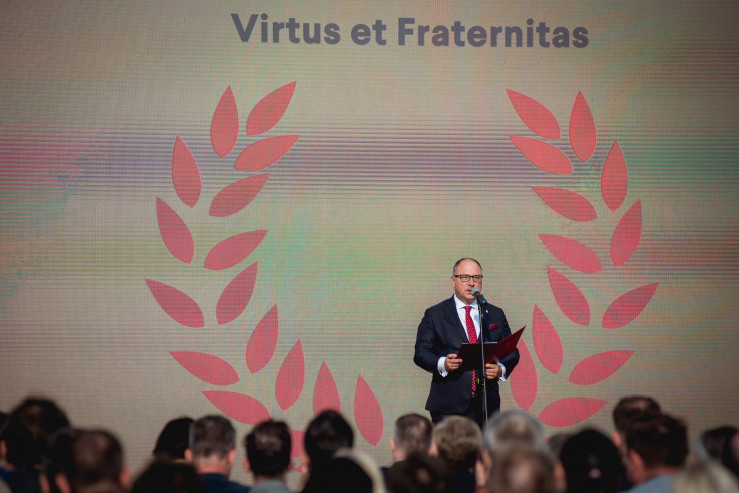
Afterwards, Professor Magdalena Gawin, director of the Pilecki Institute, read out a letter from the Speaker of the Polish Sejm Elżbieta Witek.
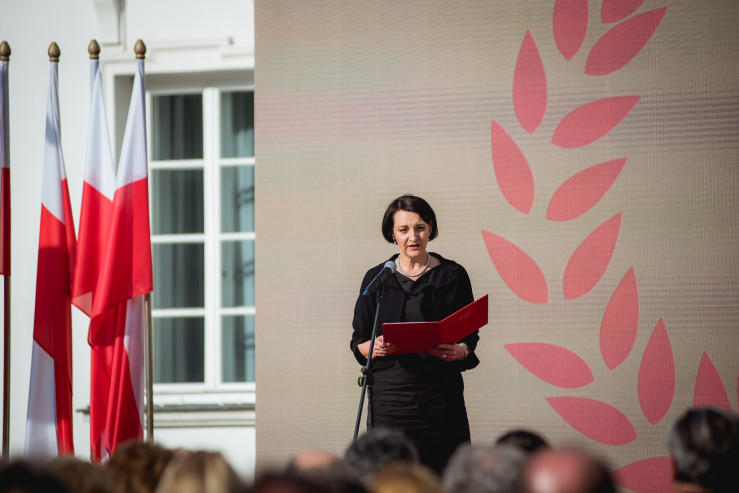
Next, the Deputy Minister of Culture and National Heritage Jarosław Sellin read out a letter from the Deputy Prime Minister and Minister of Culture and National Heritage Prof. Piotr Gliński.
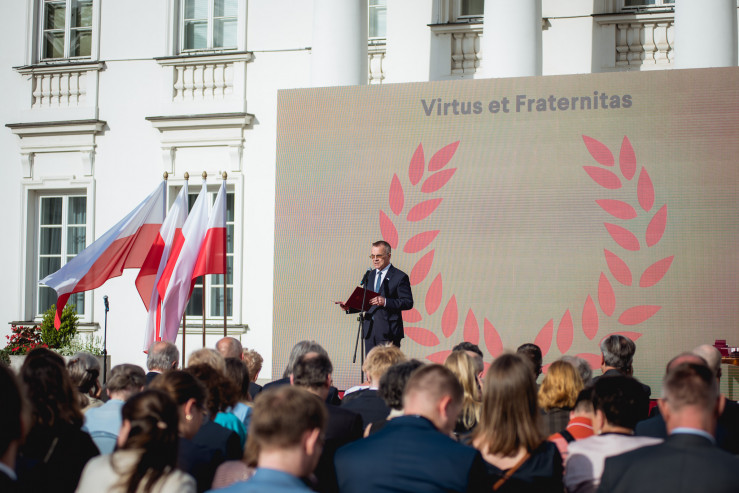
Medal recipients
Jeanine Humbert née Hermann (born 1934)
She provided assistance to Polish prisoners of war who escaped from the German Ursprung camp in 1944. Jeanine Humbert received the medal in person.
Kateryna (1909–2000) and Fedor (1905–1974) Boymistruk
A Ukrainian husband and wife who rescued two-year-old Hanna Muszyd from death during the Volhynia Massacre. The medal was received by their granddaughter.
Pedro Correia Marques (1890–1972)
A Portuguese journalist who called on the international community to provide humanitarian aid to Poles under German and Soviet occupation (especially during the Warsaw Uprising). The medal was received by Pedro Correia Marques’s grandson.
Rosalie Eugénie Fogel née Gorius (1919–2007) and Léon Humbert (1900–1969)
They helped Polish prisoners of war escape from the Ursprung camp and then hid them at the Gorius family’s farm. The medal was received by Jeanine Humbert, Gorius’ granddaughter and Leon’s niece.
Janet (1888–1945) and Peter (1884–1950) Fraser
They organized care for 733 Polish children who were in Iran in 1943. The medal was received by the couple’s great-great-grandson.
Elna Gistedt-Kiltynowicz (1895–1982)
A Swedish actress who remained in Poland after the outbreak of the Second World War and provided assistance to artists. Illegal concerts for Polish children were held at her café on Nowy Świat Street in Warsaw. The medal was received by a relative of the actress.
Józsefné Margit Károlyi (1892–1964)
A Hungarian countess involved in helping Polish refugees in September 1939 as part of the Hungarian-Polish Refugee Welfare Committee. The medal was received by the countess’s grandson.
Ján Klinovský (1905–1944)
A Slovak politician who provided assistance to Poles during the Second World War (e.g. by forwarding correspondence and organizing the smuggling of Polish citizens through Slovakia). The medal was received by Ján Klinovský’s niece.
Hélène Pionstka née Waldmann (1921–2009)
A Frenchwoman who helped Polish prisoners of war escaping from the German Ursprung camp. The medal was received by her daughter.
Aristides de Sousa Mendes do Amaral e Abranches (1885–1954)
A Portuguese diplomat who issued between 6,000 and 10,000 Portuguese visas (including to Polish Jews fleeing territories under German occupation) from May to July 1940. The medal was received by his grandson.
César de Sousa Mendes do Amaral e Abranches (1885–1955)
The Portuguese envoy to Poland. One of the few foreign diplomats who did not leave Warsaw in September 1939. He helped Cecylia Dolata, a Polish teacher, to escape from Poland. The medal was received by his son.
Paul Super (1880–1949)
The Director of the American Commission for Aid to Poles. He helped Polish soldiers to reach France and aided Polish refugees in Romania and Hungary. The medal was received by his great-grandson.
Mykhailo Susla (1901–1970)
A Ukrainian who helped the Świętojański family to escape during the Volhynia Massacre. The medal was received by his grandson Ruslan Susla.
Erzsébet (1902–1980) and Antal (1905–1972) Szápáry
Siblings from Hungary who supported Polish civilians crossing into Hungary during the Second World War as part of the Hungarian-Polish Refugee Welfare Committee. The medal was received by Antal’s son and Erzsébet’s niece.
Raymond Voegeli (1894–1980)
A French clergyman. One of the organizers of the escape of Polish prisoners of war from the German camp in Ursprung. He also gave them shelter and help. The medal was received by a representative of the Archbishop of Strasbourg.
Edith Weiss (1899–1967)
A member of the Hungarian-Polish Refugee Welfare Committee. She provided assistance to Jewish people, including Polish Jews, in Hungary and protected them from deportation. The medal was received by a relative of Edith Weiss.
Julien Bryan (1899–1974)
An American photographer and documentary filmmaker. He recorded crimes committed in Poland during the Second World War. The medal was received by a representative of the US Embassy in Poland.
Following the presentation of the Virtus et Fraternitas Medals, Jeanine Humbert spoke on behalf of the recipients.
Stanisław Urbanik then spoke on behalf of the Polish survivors.
We also managed to establish an Internet connection with Hanna Muszyd, the survivor and foster daughter of the Boymistruks, and Julien Bryan’s son. Both of them gave an emotional expression of their gratitude.
Finally, Ruslan Susla, the grandson of Mykhailo Susla, spoke.
The official section of the gala was concluded with a performance by the Zazula vocal group.
In the evening, the guests attended the opening of an exhibition devoted to the recipients of the Virtus et Fraternitas Medal. The exhibition is on display outside the Kordegarda Gallery until 5 July.
See also
- Competition for the position of Adjunct in the Humanities, Department for the study of Nazism and German occupation during the Second World War
News
Competition for the position of Adjunct in the Humanities, Department for the study of Nazism and German occupation during the Second World War
We invite you to participate in the competition for the position of Adjunct in the Humanities, Department for the study of Nazism and German occupation during the Second World War.
- PORTRAITS | Adam Bałdych Quintet
News
PORTRAITS | Adam Bałdych Quintet
“Portraits” is a moving story told through sound, in which jazz meets history and individual fates intertwine with the collective experience.
- Competition for the position of Adjunct in the Humanities
News
Competition for the position of Adjunct in the Humanities
Competition for the position of Adjunct in the Humanities, Department for the study of Nazism and German occupation during the Second World War at the Witold Pilecki Institute of Solidarity and Valor.
- Merry Christmas!
News
Merry Christmas!
On the occasion of Christmas, we wish you all the best and every success in 2026.
- The Lemkin Laboratory – the Pilecki Institute and the Mieroszewski Centre sign cooperation agreement
News
The Lemkin Laboratory – the Pilecki Institute and the Mieroszewski Centre sign cooperation agreement
- 2025 | Michał Bilewicz, „Traumaland. Polacy w cieniu przeszłości"
News
2025 | Michał Bilewicz, „Traumaland. Polacy w cieniu przeszłości"
Michał Bilewicz’s “Traumaland. Polacy w cieniu przeszłości” (Wydawnictwo MANDO/Wydawnictwo WAM) won the Witold Pilecki International Book Award in the “academic history book” category.
- 2025 | Emil Marat „Bratny. Hamlet rozstrzelany"
News
2025 | Emil Marat „Bratny. Hamlet rozstrzelany"
The book “Bratny. Hamlet rozstrzelany” (Wydawnictwo Czarne) won the Witold Pilecki International Book Award in the “historical reportage” category.
- Maksym Eristavi, Russian Colonialism 101. How to Occupy a Neighbor and Get Away with It. An Illustrated Guide
News
Maksym Eristavi, Russian Colonialism 101. How to Occupy a Neighbor and Get Away with It. An Illustrated Guide
Maksym Eristavi’s “Russian Colonialism 101. How to Occupy a Neighbor and Get Away with It. An Illustrated Guide” (IST Publishing) won the the Witold Pilecki International Book Award in the “special prize” category.
- The Witold Pilecki International Book Award: Bilewicz, Marat and Eristavi winners of the Institute’s 5th competition for best history book
News
The Witold Pilecki International Book Award: Bilewicz, Marat and Eristavi winners of the Institute’s 5th competition for best history book
The Witold Pilecki International Book Awards were presented during a ceremony on Thursday 11 December, in the auditorium of the Pilecki Institute.
- Conference summary “Die Haltung der deutschen Minderheiten im besetzten Europa (1939–1945). Forschungsmethoden, soziale Kontexte und Nachkriegsfolgen”
News
Conference summary “Die Haltung der deutschen Minderheiten im besetzten Europa (1939–1945). Forschungsmethoden, soziale Kontexte und Nachkriegsfolgen”
On 20–21 November 2025, an international academic conference was held in Berlin and addressed issues of the attitudes of the German population during the occupation and their postwar fate.
- Results of the Competition for the position of Manager of the Extraneous Branch of the Witold Pilecki Institute of Solidarity and Valor in Berlin
News
Results of the Competition for the position of Manager of the Extraneous Branch of the Witold Pilecki Institute of Solidarity and Valor in Berlin
Warsaw, 20 November 2025 | Announcement of the results of the Competition for the position of Manager of the Extraneous Branch of the Witold Pilecki Institute of Solidarity and Valor in Berlin.
- Nominations for the Witold Pilecki International Book Award 2025 (fifth edition)
News
Nominations for the Witold Pilecki International Book Award 2025 (fifth edition)
We know the authors nominated for the fifth edition of the Witold Pilecki International Book Award! Out of 60 submissions, the Awards Committee has selected 12 publications to compete in three categories.
